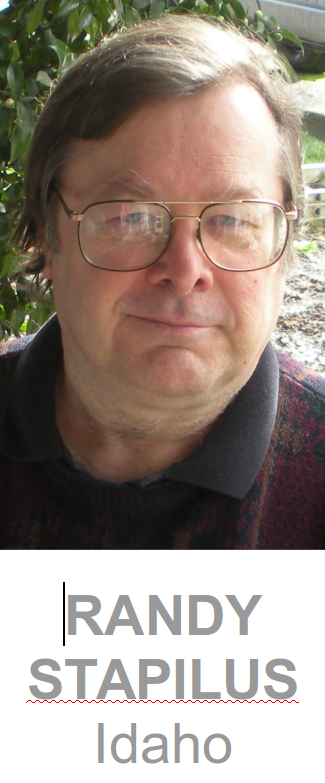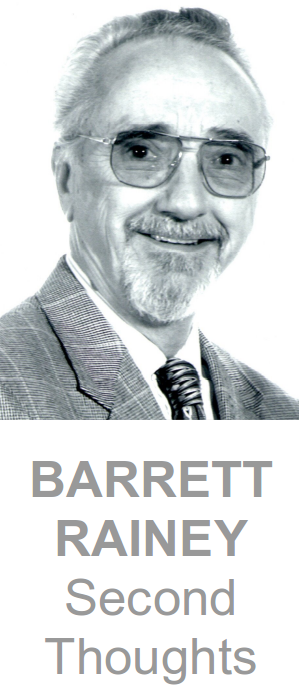
Maybe it’s the dark and cold, or some recent book I read, but I have found myself reflecting on the aspirational phrase of one of our countries founding documents: “the pursuit of happiness”.
Jefferson drafted the Declaration of Independence and used the inalienable rights of man to justify the colonies rebellion against the sovereign king.
“Pursuit” didn’t mean chasing after, but rather “living as.” Much like my wife pursues gardening; she grows plants, she has me dig up and move plants, occasionally she allows me to prune the plants. She’s not chasing gardening, she’s doing it. And it brings her great happiness.
So, I wonder if we as a nation have given up on the pursuit of happiness. From what I can see nowadays, most folks, congress and our President included, seem to be pursuing rancor. Bitterness is the flavor of our national drink. Let’s change that.
Jefferson’s other inalienables, life and liberty, were not placed in this short list as contrast, but rather as a cohort. Without life, pursuit is moot. Without liberty, the pursuit is limited. I believe he chose these three rights because they support one another; or they should.
A friend recently mentioned that the Constitution defined the pursuit of happiness as an inalienable right. I had to correct him that the phrase was in our Declaration of Independence. Nowhere does the Constitution define such a right. It was just too general, not specific enough. But I believe the founders had such a phrase in mind as they drafted the constitutional mechanics of government. Indeed, the Preamble references the purpose of the “Common Good” for the following document. Let us take such to heart.
Government cannot make one pursue happiness, but it definitely can get in the way of such a pursuit. The founders and subsequent amenders placed specific limits on government, so we would be free to pursue happiness.
But that doesn’t mean any act of government reduces my liberty or blocks my pursuit of happiness. I greatly appreciate that I don’t have to stop and pay tolls. I would much rather pay a tax at the filling station. I accept that we need money for roads. The gas tax supports the common good. But toll roads work for many states. The states are the incubators for this balancing of life, liberty and the pursuit.
I also felt liberated when, after a recent doctor visit, I was told I didn’t owe anything. I hadn’t had to spend time shopping for insurance, I hadn’t had a copay. I am now a Medicare recipient. Some might describe this as an infringement on their liberty, a universal health insurance for the elderly. But the elderly don’t. Survey after survey has shown Medicare enrollees are satisfied with their health insurance. No surprise, since we Medicare beneficiaries get about 15% of the annual Federal budget to support our liberty.
If your sense of liberty demands that everybody just gets out what they pay in, then we should make a law against insurance. But most people agree to pool their risks on a home fire. They pay the premium, and don’t wish their house will burn down. Most people agree to share risks with their neighbor when they buy car insurance. But as a country, we just have not concluded that we are all in the health care risk pool together.
And I believe our citizens pursuit of happiness has been stifled by the lack of universal health care coverage.
But we have solved these problems as a country before. We have built roads, we have sewer systems, we have schools and stadiums, all with community, state or sometimes federal support. We all need to keep our eyes open about who gets what benefits.
We need to pursue the common good. Vote for people who will.




 Stephen Brusatte -
Stephen Brusatte -  Andy Greenberg -
Andy Greenberg -  Matthew Horace and Ron Harris -
Matthew Horace and Ron Harris -  Fletcher Knebel -
Fletcher Knebel -  Nicholas D. Kristof and Sheryl WuDunn -
Nicholas D. Kristof and Sheryl WuDunn -  Jill Lepore - These Truths: A History of the United States (2019). Lepore has been an excellent bringer of fresh perspective on American History for years in her New Yorker articles, and a great big, massive slab of her take on American history makes for a real treat all by itself. It is set up in part as a corrective to some other broad-brush American histories, spreading less time and attention on the traditional national heroes, elections and military actions than most such books so, and pouring a lot of space into the marginalized - the American history of slaves and their descendants, and of women, get quite a work through. This isn't necessarily the only book on American history you'd ever want to read, but it belongs on a short list that you should, partly as a useful balance to almost everything else out there, and partly because of the beauty of the writing and the laying-out of connective tissues that are Lepore's hallmark.
Jill Lepore - These Truths: A History of the United States (2019). Lepore has been an excellent bringer of fresh perspective on American History for years in her New Yorker articles, and a great big, massive slab of her take on American history makes for a real treat all by itself. It is set up in part as a corrective to some other broad-brush American histories, spreading less time and attention on the traditional national heroes, elections and military actions than most such books so, and pouring a lot of space into the marginalized - the American history of slaves and their descendants, and of women, get quite a work through. This isn't necessarily the only book on American history you'd ever want to read, but it belongs on a short list that you should, partly as a useful balance to almost everything else out there, and partly because of the beauty of the writing and the laying-out of connective tissues that are Lepore's hallmark. Henning Mankell, Laurie Thompson (translator) -
Henning Mankell, Laurie Thompson (translator) -  Barack Obama -
Barack Obama -  Chibundu Onuzo -
Chibundu Onuzo -  Stuart Stevens -
Stuart Stevens - 








